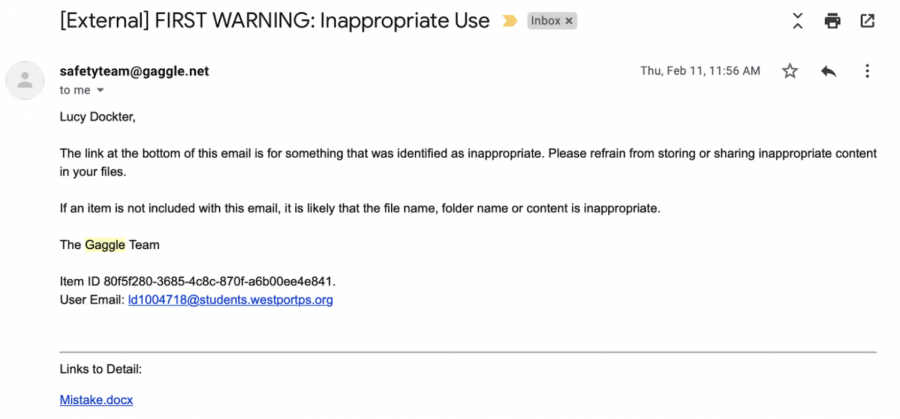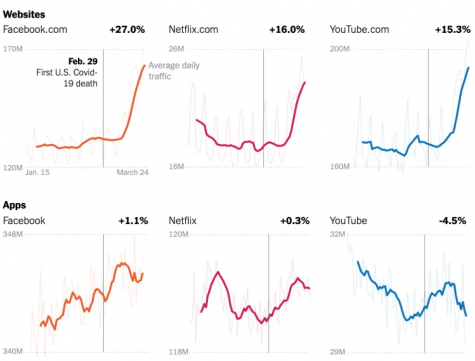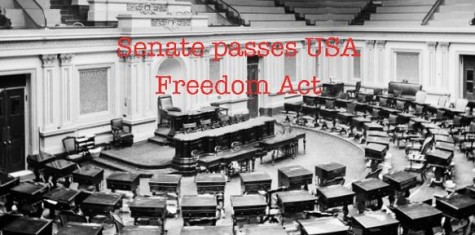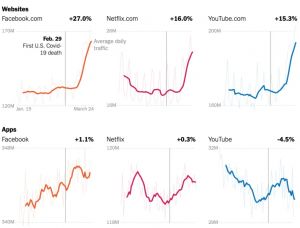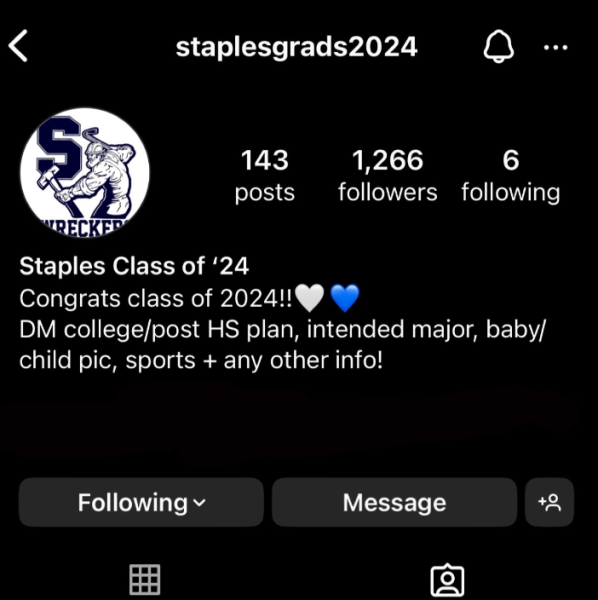Gaggle monitors student online behavior, threatens student privacy
(The document at the bottom of the email is a submission to Soundings literary journal, which I am a part of.) Gaggle harasses Staples students with minor infractions, creating exactly what they set out to put an end to: an unsafe, stressed environment, negatively impacting student mental health.
DISCLAIMER: Article contains explicit language.
“FIRST WARNING: INAPPROPRIATE USE.” Walking into class before my first high school midterm, my heart raced. I had no idea what that email was about. What had I done? Would I be in trouble?
Students at Staples High School produce an enormous digital footprint filled with essays, homework, emails and surveys, all of which is monitored by the third party surveillance system, Gaggle. While students may have no expectation of privacy on school-owned platforms, because we are required to use Google suite for every piece of schoolwork, and Gaggle has access to everything on or linked to that Google address, it infringes upon our privacy.
Despite 24 hour surveillance, Gaggle has proven to be ineffective in creating a safer school environment. It has become more of a violation of privacy rather than a safety regulatory utility.
Despite the company’s claim to having saved “thousands of lives,” the Westport Public School system has released no data regarding the effectiveness of Gaggle. There has been no information sent to students and families about how Gaggle has affected the lives at Staples other than providing yet another nuisance.
Gaggle uses a combination of artificial intelligence (AI) and “trained safety experts” to scan online file storage, inbound and outbound emails, website links and attachments. Anything with references to drug and alcohol use, intentions of violence, sexual content, self-harm, hate speech, pornography and even minor profanity supposedly gets flagged. However, my own personal experience proves lapses and failures in the system.
There are three levels of infractions. If a document is flagged with a Level 1 (violation) or Level 2 (questionable content) infraction, students will be emailed a warning, and administrators will be alerted of these findings. Level 3 is the most serious and includes threats of violence, suicide and child pornography, and a notification will be sent directly to district personnel and possibly law enforcement.
I have received “Level 1” notifications. This third party company harasses me with all capital letter subject lines. They tell me I have committed some offense–but never exactly what it is. Therefore, there is no way for me to learn or change my alleged “inappropriate behavior.” In what school system is it acceptable to discipline a student–and not tell her what she has done? (I have come to assume that mild profanity in fiction stories shared with me in my role as editor of the school literary magazine are my undoing.)
Most egregiously, I get flagged for work that is shared with me by the owners–and the owners do not receive infraction notifications. This is proof that the AI/safety experts are random and capricious.
I have never been contacted by school administration about any of my notifications. I don’t even know if they review the infractions. If something really were wrong, if I were depressed or posed a danger to another student, would our administration know or care?
After the mass shooting in Parkland, Florida in 2018 which left 17 people dead and 17 injured, internet surveillance companies targeted schools, marketing themselves as a method to prevent such horror. Today, in the midst of the COVID-19 pandemic, Gaggle claims it an effective tool for intervention in student mental health issues.
Over the 2019-20 school year, Gaggle media release stated that they monitored over 4.5 million students in the US and saved 927 lives. They deemed around 6.25 billion documents as harmful, including 64,000 references to suicide or self harm, 38,000 references of violence toward others and 18,000 instances of nudity or sexual content.
Despite the company’s claim to having saved “thousands of lives,” the Westport Public School system has released no data regarding the effectiveness of Gaggle. There has been no information sent to students and families about how Gaggle has affected the lives at Staples other than providing yet another nuisance.
Under the Child Internet Protection Act (CIPA), every school system is required to have an internet safety policy in place. However, according to Natalie Carrignan, Westport Public Schools Director of Technology, unlike many other internet surveillance services, Gaggle does not offer the option to customize its platform. (Other companies do not threaten students over minor profanity.)
If Gaggle is catching so many students who are attempting suicide, what does that say about the school community and its lack of mental health guidance and support? If the administration spent as much time as it does on Gaggle as it does working with students and faculty to create a safer environment where students could reach out for help, we might be able to reduce the need for constant surveillance.
Fuck.

Editor-in-Chief Lucy Dockter ’23 spends time playing the cello, flying planes and managing her staff in Inklings. Dockter first gained interest in journalism...











































